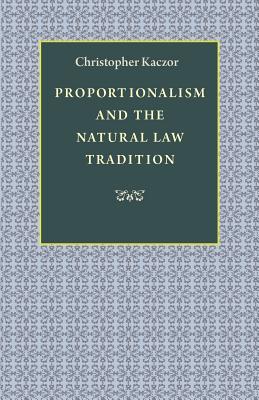Consequentialism and Catholic ethics seem to be natural enemies. The Catholic prohibition against intentionally killing the innocent, lying, committing adultery, and so on contradicts the very essence of consequentialism that no act may be assessed as good or evil independently of its consequences. However in the 1960s within the Catholic tradition itself, there arose a method in ethics called proportionalism which practically, if not theoretically, affirmed that which consequentialists have long affirmed and Catholic ethicists had so long denied, namely one may do evil that good may come. According to proportionalists, so long as the good effects are proportioned to the bad effects of the act, the act is licit even if evil is used as a means to achieve the good. In this book, Christopher Kaczor argues against the plausibility of proportionalism and its first proponents, namely Peter Knauer, Joseph Fuchs, Bruno Schüller, Louis Janssens, and Richard McCormick. Examining the genealogy of the movement, he disputes a received history that depicts proportionalism as a recovery of Thomas Aquinas. Instead, contends Kaczor, proportionalism is best seen as the organic successor to the moral manuals of the pre-Vatican II era. Proportionalism arises not from Thomas but rather extends many of the tendencies and presuppositions of the manuals. In particular, it retains their marginalizing of the account of human action as a knowing-willing involving a number of stages not always consciously recognized yet carefully described by Thomas in Summa theologiae, Prima Secundae, 6-17. Kaczor shows that a great deal of the plausibility of proportionalism rests on a fragile foundation that is rapidly eroding, an education in the moral manuals. Christopher Kaczor is Assistant Professor of Philosophy at Loyola Marymount University. He has studied with the foremost American proponent of proportionalism, Richard A. McCormick, S.J. Kaczor is author of numerous articles and reviews, and editor of Proportionalism--For and Against. Praise for the book: "Balanced discussions that fairly portray both sides of the proportionalism debate are rare; Christopher Kaczor's recent book is one such source. . . . Although no fan of proportionalis, Kaczor succeeds in clearing up the misunderstandings; because of this, his book is an invaluable contribution, and it appears none too soon. . . . Kaczor is a well-organized writer. His chapters are systematically presented. He first gives the context of









